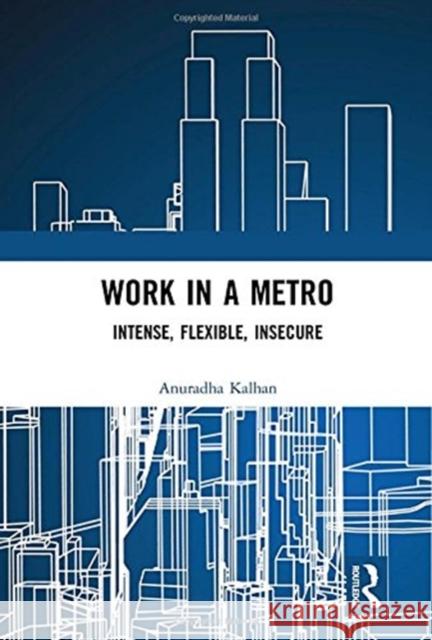Work in a Metro: Intense, Flexible, Insecure » książka
Work in a Metro: Intense, Flexible, Insecure
ISBN-13: 9781138484894 / Angielski / Twarda / 2017 / 434 str.
Work in a Metro: Intense, Flexible, Insecure
ISBN-13: 9781138484894 / Angielski / Twarda / 2017 / 434 str.
(netto: 741,76 VAT: 5%)
Najniższa cena z 30 dni: 705,23
ok. 16-18 dni roboczych.
Darmowa dostawa!
This volume is about why ‘work’ changed to become more precarious around the turn of the century. This happened not just in the developed world but also inside sectors that were demarcated as organized and modern within developing countries like India. In these sectors, unlike the greater part of the Indian economy, insecure jobs were uncommon before winds of change made them normal. This shift had occurred before the great global financial crisis of 2008.
Between 2005-8 a survey based on over thousand structured interviews with workers in offices, factories, shops and establishments (below the supervisory rank) in Mumbai was undertaken. This is the innovative segment of the book which tries to measure and quantify some of these changes and their associations. It is designed to investigate the central proposition of the ‘Insecurity Hypothesis’ (IH), which is that the economic risk of increased and global competition was being progressively passed on from the employer to the employee. This was happening through shortened job tenure, erratic remuneration, variable work, contingent employment, and institutional changes that remove or reduce protection, bargaining power of employees in the work place everywhere. The corollary is that widespread and unremitting work (and income related) insecurity is an expedient competitive strategy but a damaging socio-economic phenomenon.
Please note: Taylor & Francis does not sell or distribute the Hardback in India, Pakistan, Nepal, Bhutan, Bangladesh and Sri Lanka











